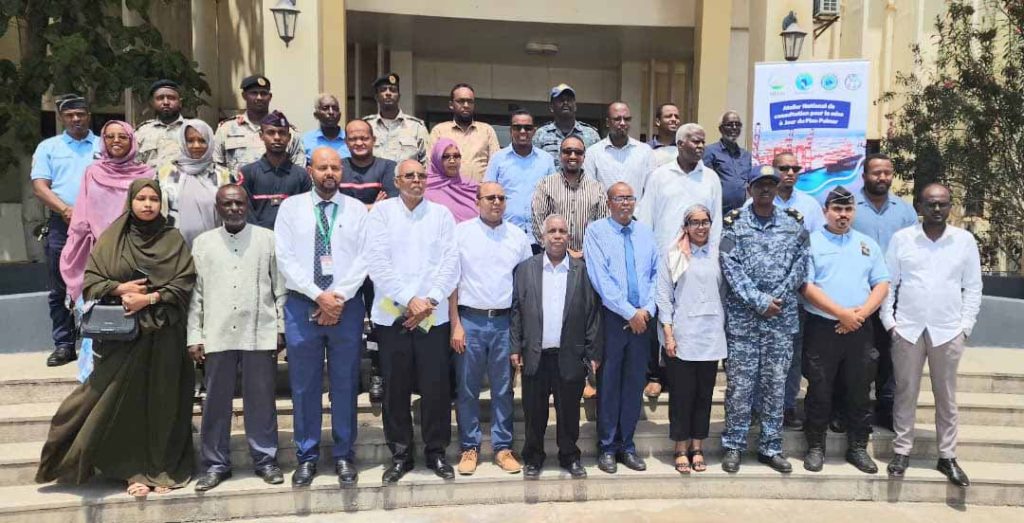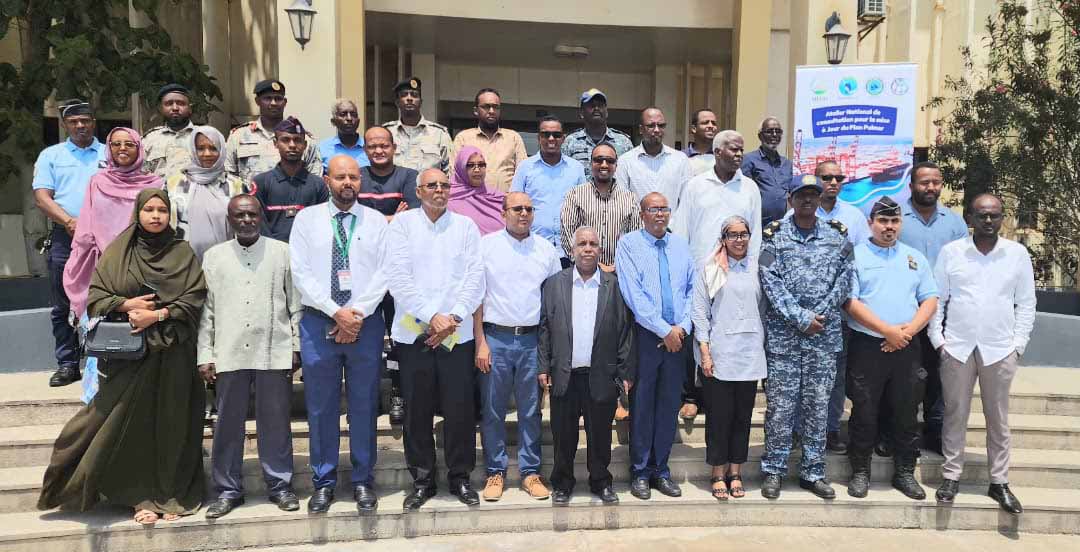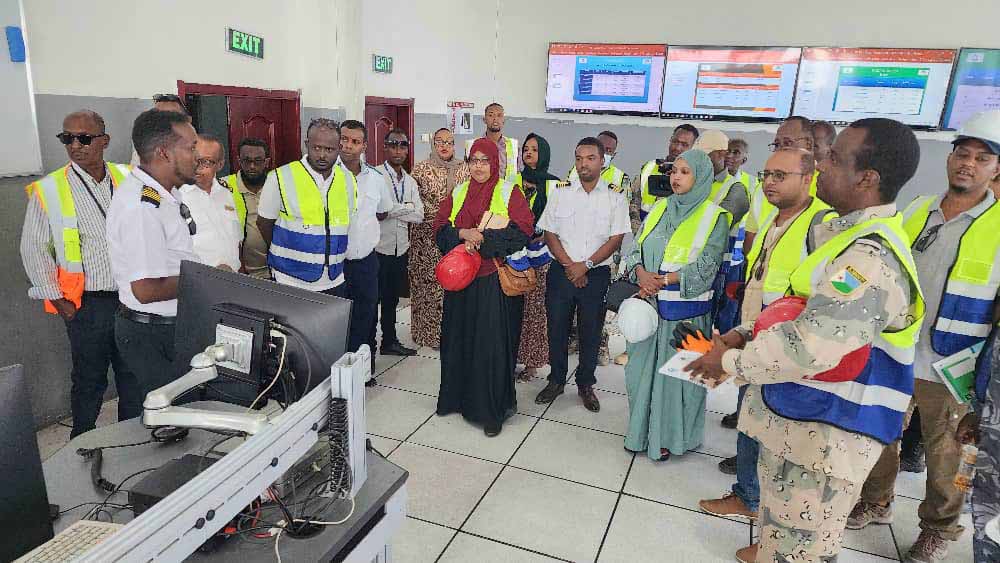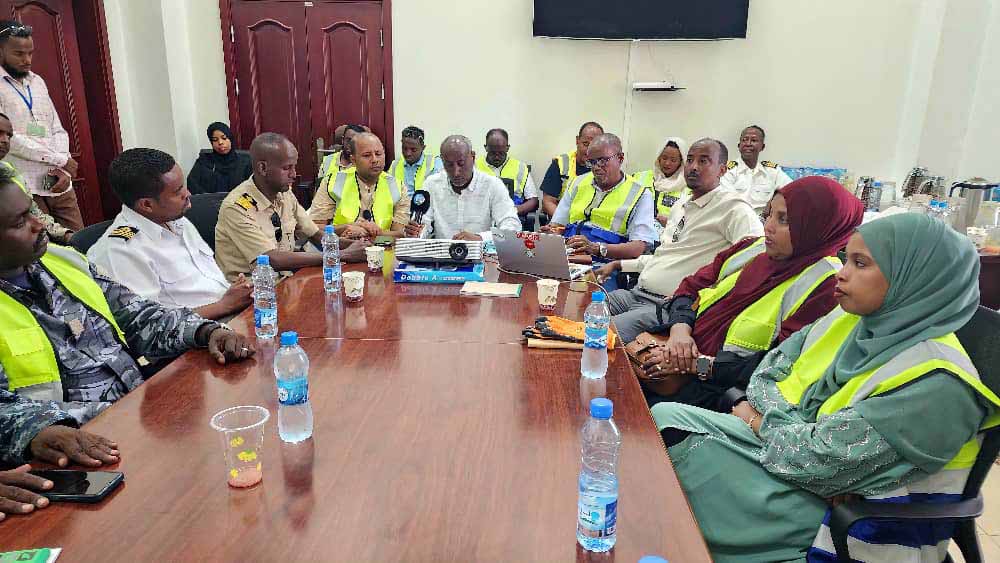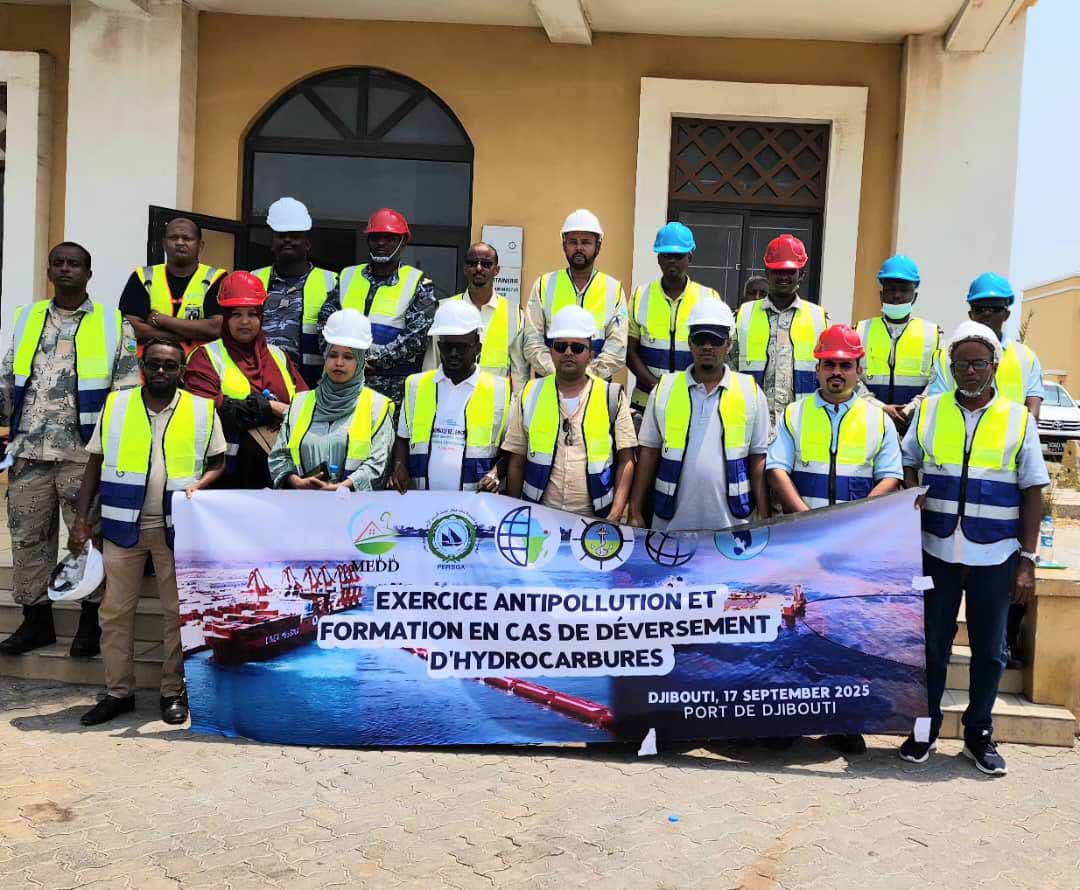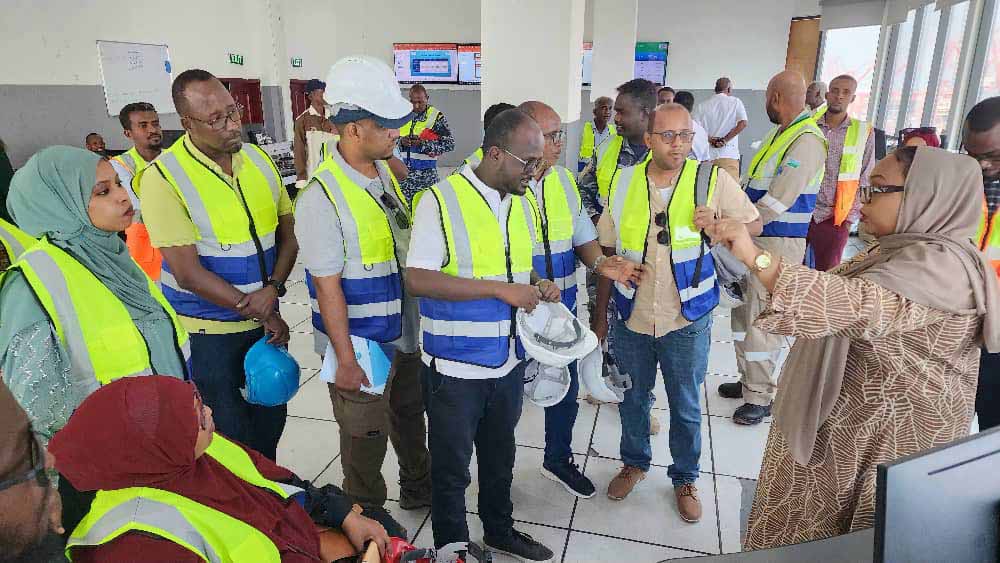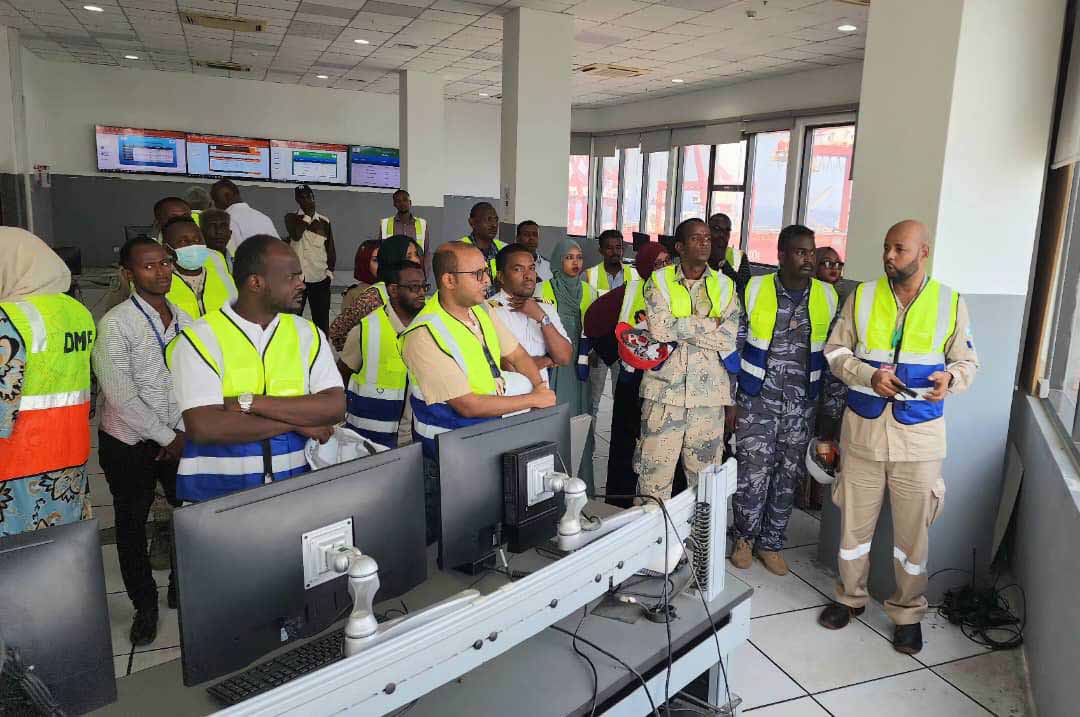Marine pollution response experts, national agencies, and key stakeholders gathered in Djibouti from 16–18 September 2025 for the National Consultation Workshop on Updating the Djibouti National Contingency Plan (POLMER).
The event was organized by PERSGA in collaboration with the Ministry of Environment and Sustainable Development of Djibouti, with support from the World Bank–funded SFISH Project. Around 37 participants attended, representing key national agencies such as the Navy, Coast Guard, Civil Society Organizations, and the Ministries of Transport and Energy, along with NGOs.
On the first day, a dedicated consultation session was held, focusing on the methodological process and the timeline for updating the POLMER Plan. Discussions also addressed the results of the RETOS risk and response capacity assessment, and how national priorities can be integrated into the revised Plan to ensure preparedness for future oil and HNS spill incidents.
The second day was dedicated to a Port visit and field exercise at the Port of Djibouti, involving technical visit and an anti-pollution control exercise at the Doraleh multipurpose port. This hands-on field visit tested operational readiness, teamwork, and the efficiency of national resources in containing and recovering oil spills.
The third and final day focused on the review and validation of the revised work Plan, consolidating inputs from all stakeholders and aligning it with international and industry standards (OPRC and OPRC-HNS, IPIECA/ITOPF). Participants highlighted the importance of continued inter-agency coordination and practical exercises to maintain a strong national response system.
The workshop marked a key milestone in Djibouti’s commitment to improving marine pollution preparedness and response, ensuring stronger national resilience against emerging environmental threats in the Red Sea and Gulf of Aden.
A second workshop will be convened by the end of 2025 to introduce and roll out the newly revised contingency plan. During this session, tabletop exercises and drills will be conducted to test and confirm the implementation of the updated POLMER Plan, which will be brought into force by presidential decree.

